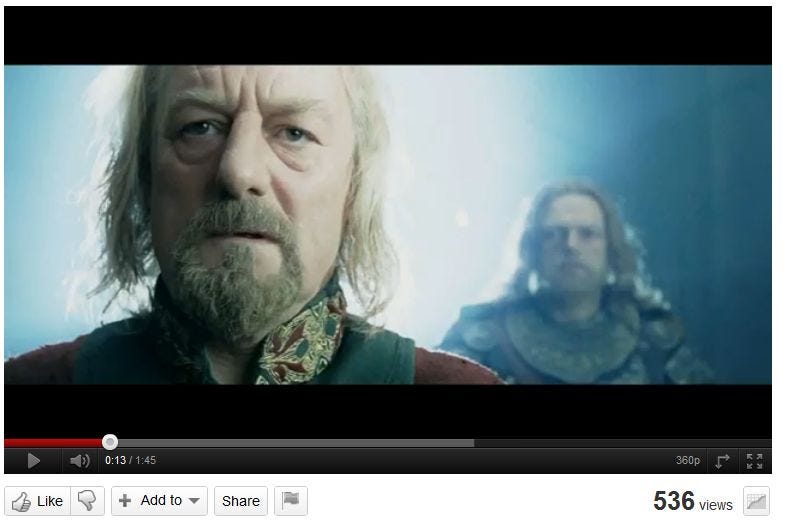Elegies, Earth-Walkers, and the Lord of the Rings
It is no secret that J. R. R. Tolkien was very much influenced by old Anglo Saxon literature. When contemplating the connections in between his work and Old English literature, I remembered learning about an elegy titled, "The Wanderer." In it a man, known as the "earth-walker," laments losing his lord, companions, and (how could you forget) his mead hall.
The sense of loss that pervades this poem is iconic of much archaic Anglo-Saxon literature. Here is the text in its original language. (Check out the use of thorn, I love that letter. Let's bring back þorn!) [Stop giggling that is NOT a "p."]
In the poem, the method of mourning the loss of what the "earth-walker" holds dear is done by the use of the word "where" and "what."
Here is an excerpt from the translation of "The Wanderer" by E. T. Donaldson:
So the Maker of mankind laid waste this dwelling-place until the old works of giants stood idle, devoid of the noise of the stronghold's keep-ers. Therefore the man wise in his heart considers carefully this wall-place and this dark life, remembers the multitude of deadly combats long ago, and speaks these words: 'Where has the horse gone? Where the young warrior? Where is the giver of treasure? What has become of the feasting seats? Where are the joys of the hall? Alas, the bright cup! Alas, the mailed warrior! Alas, the prince's glory! How that time has gone, vanished beneath the night's cover, just as if it never had been! The wall, the wondrous high, decorated with snake-likenesses, stands now over traces of the beloved company. The ash-spears' might has borne the earls away-- weapons greedy for slaughter, Fate the mighty; and storms beat on the stone walls, snow, the herald of winter, falling thick binds the earth when darkness comes and the night-shadow falls. . .
There is a scene in the film Lord of the Rings: The Two Towers where King Theoden is reflecting on the losses of his people and their impending doom before the Battle of Helm's Deep. I thought it was a great tribute to the spirit of the elegy in Anglo Saxon literature. Watch for yourself, and see if you can make the connections in between what the actor is saying in this scene and "The Wanderer."

Click to watch.
What do you þink? And wouldn't you like to resurrect "þ"? :)
